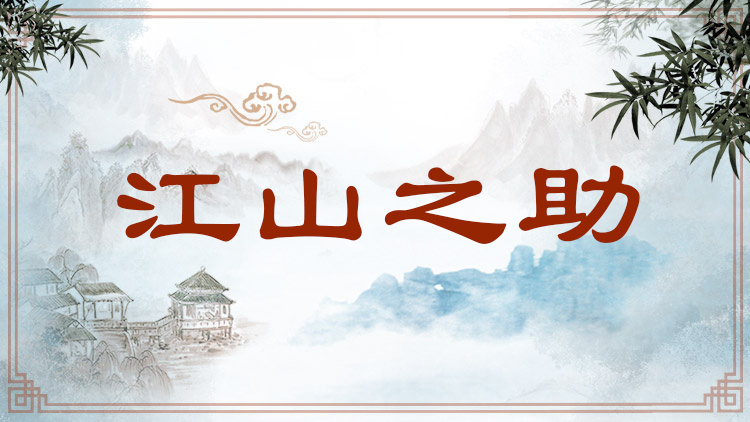Inspiration from Mountains and Rivers

江河山岳的景致启发、助益了文人的创作灵感和文学构思。“江山”指江河山岳,它与“庙堂”相对,多与隐逸相关。中国古代文人如果不能得志于庙堂,或者有意逃离庸俗琐碎的功名利禄,则往往放旷于山水之间。山水是诗歌、文章的描写对象,也是文人情感的寄托。山水诗在晋宋之时兴起。山水成为独立的审美对象,从山水中获得的灵感与领悟,有助于丰富文学作品的审美样态。“江山之助”所助的不仅是文学作品中对山水景物的描写,更有助于文人精神世界的陶冶和提升,使其获得更超越的视野和胸襟,在整体的文学体验和文学表达方面可以达到更高的境界。
Mountains and rivers often inspire the literati in their literary conception. They use such landscapes in contrast to the imperial court. Thus, mountains and rivers symbolize a reclusive way of life. When ancient men of letters were unappreciated by the bureaucracy or when they wanted to escape from mundane duties and the crass pursuit of position and wealth, they might find their own meaning among mountains and rivers. They were not only the objects of poetic and prosaic description, but also where men of letters sought spiritual consolation. Mountain-and-river poetry first emerged between the Jin Dynasty and Song of the Southern Dynasties. Mountains and rivers became independent objects of artistic appreciation. Inspiration thus drawn adds to the aesthetic diversity of literary expression. The sight of mountains and rivers not only aids actual description of natural scenery in literary works, but also helps to chasten and elevate men of letters' spiritual world, expand their horizons and broaden their minds. Such aesthetic activities raise them to greater heights in literary experience and expression.
例句 Citation:
◎物色相召,江山助人。请振翰林,用濡笔海云尔。(骆宾王《初秋登司马楼宴诗》)
风物景致召唤人,山山水水帮助人。请有才华的人振奋起来,饱蘸笔墨尽情为文吧。
With the scenery so inspiringly beautiful and the landscape so exhilarating, talented men should really cheer up and set brush to paper. (Luo Binwang: Improvising a Poem While Attending a Banquet at the Marshal's Home on an Early Autumn Day)
推荐:教育部 国家语委
供稿:北京外国语大学 外语教学与研究出版社
责任编辑:钱耐安





